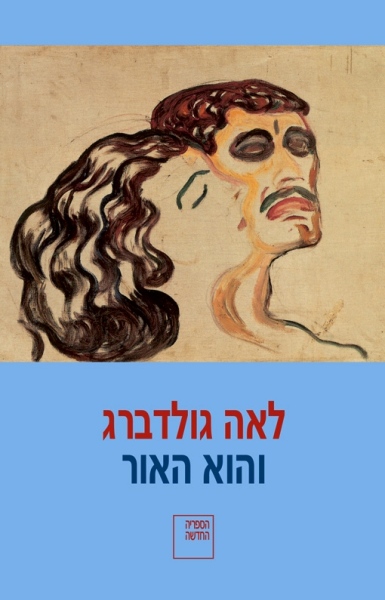It's rather stunning that I'm two years into a project regarding women writers in translation (and women writers in general), and this is the first time I've ever read Lea Goldberg, one of Israel's most prominent poets. What's more shocking is that I started not from her poems (though technically I suppose I must have read some as a child, since she is a popular children's book writer and many of her poems have been used as song lyrics...), rather her single novel. Indeed, it turns out to be a strange place to start...
And This is the Light is an odd novel. First and foremost, I find myself incredibly curious as to how it was translated into English - one of its most notable traits in Hebrew is the distinctly old-fashioned style. Written in 1942 in a still-new Hebrew (from a literary perspective, at least), And This is the Light is a strange mash-up of familiar modern terminology (not the aloof Hebrew of either ancient literature or historical fiction), yet it's also clearly not the literary Hebrew which would follow only fifteen years down the line (significantly more down-to-earth and conversational, though written Hebrew remains far more formal than spoken). And This is the Light reads archaic and nostalgic for a language which never quite existed, and sometimes the words felt so strange in my mouth. It was like reading a novel from the 17th century, not just from fifty years before I was born.
It's a strange novel from the plot perspective as well, mainly because... it doesn't have one. And This is the Light is a novel of feelings more than anything, a character study of the young Nora going through a specific (rough) transition period in her life. Yet it's not quite a coming-of-age story either - Nora doesn't change much throughout the story, rather she seems to accept certain facts about the world and herself.
These could all mean that And This is the Light would fail as a novel, but it surprisingly enough doesn't. Goldberg's style is unsurprisingly lyrical, and Nora's introspection is lovely. She's not a flawless character of pure perfection, but her struggles and emotional turmoil felt decidedly real. Her thoughts on her place on the world, on her perspectives, on her own health and happiness, and especially as regards her position relative to others resonated deeply with me. It helps that the novel has solid pacing and a wonderful flow.
Nora's feelings are not unique - she's a very ordinary young woman, guided by her emotions along familiar tracks. Her romantic inclinations are predictable, but also distinctly restrained: the novel makes room for Nora's fantasies, but also keeps them distinctly in check. There's a sense that Goldberg was writing to remind young readers (perhaps her past self?) that sometimes life isn't just that fairy tale you wish it would be.
I want to note two interesting points. The first is that despite being written in the midst of the Holocaust, And This is the Light hardly addresses matters of either anti-Semitism or Zionism. Nora briefly discusses her Zionist tendencies (she is studying archaeology with the express purpose of going to Israel/Palestine), but it's portrayed as a clearly far-off event in Nora's life. The second is that And This is the Light is much more about internal feelings than externally expressed ones. There's an expectation, and little fulfillment. I don't want to ruin aspects of the novel, but suffice to say that despite the familiarity of And This is the Light's story, Goldberg avoids common plot points neatly.
And I liked the book. I did. I liked the writing, and despite knowing that I'd probably dislike Nora if I ever met her in person, I found it interesting to see the world through her fairly naive eyes. It's not the foremost literary classic out there, but it's an interesting early Israeli novel (that is distinctly European) and a great example of what happens when poets write novels (spoiler alert: they write beautifully).


No comments:
Post a Comment
Anonymous comments have been disabled due to an increase in spam. Sorry!